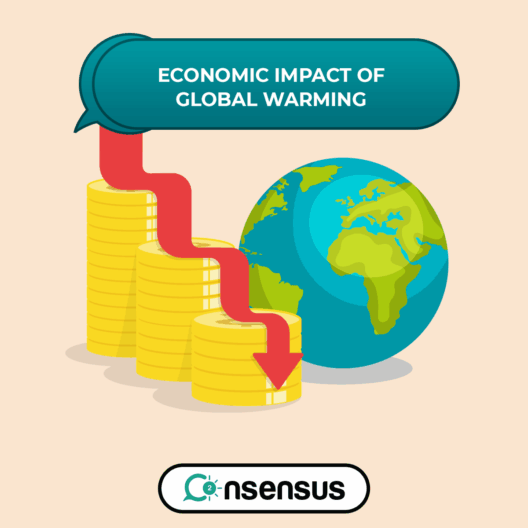Climate change, primarily driven by anthropogenic global warming, represents one of the most formidable challenges facing humanity today. Its ramifications are profound, influencing not only ecosystems but also human health, economies, and social structures. Yet, amid this daunting reality, collective efforts can make a remarkable difference. The question arises: how can we save Earth from global warming? This inquiry transcends individual actions; it necessitates a harmonious amalgamation of initiatives that engage communities, governments, and organizations.
To effectively combat global warming, we must first cultivate awareness amongst the global populace. Education stands as a pillar of any successful climate movement. By instilling knowledge regarding the science of climate change and its myriad effects, society can transform apathy into action. Schools, communities, and digital platforms must prioritize curricula that emphasize sustainability, environmental stewardship, and ecological principles. A well-informed populace is empowered to make conscientious choices, from reducing energy consumption to advocating for policy change.
Next, it is imperative to acknowledge the role of legislation in shaping environmental policies. Governments wield significant power in mitigating climate change through regulations and incentives. Comprehensive climate legislation can enforce emissions reductions, promote renewable energy, and incentivize sustainable practices in industries. Public pressure on elected officials to enact progressive environmental policies can catalyze legislative transformation. Effective advocacy often hinges on the symbiotic relationship between grassroots movements and political entities. Mobilization of citizens can lead to petitions, protests, and lobbying efforts that create a unified demand for change.
In parallel, innovative technologies present a promising avenue for combating climate change. Investment in renewable energy sources such as solar, wind, and geothermal will radically transform energy landscapes. As traditional fossil fuels emit vast quantities of greenhouse gases, shifting towards renewables not only curtails these emissions but also fosters energy independence. Collectively, nations must prioritize research and development in these sectors. National and international collaboration can yield groundbreaking advancements, such as carbon capture technologies that mitigate emissions from existing industries.
Equally important is the transition toward sustainable transportation. Transportation is a significant contributor to global emissions; thus, promoting alternative modes of travel can alleviate this burden. Urban planning must integrate public transportation systems, bicycle lanes, and pedestrian-friendly infrastructures designed to encourage mindful mobility. Electric vehicles (EVs) represent a compelling solution, yet their viability relies on the accessibility of charging stations and supportive governmental policies. By fostering the growth of EV infrastructure and promoting carpooling, communities can collectively reduce their carbon footprints.
Moreover, restoring natural ecosystems can serve as a vital strategy in the fight against global warming. Forests, wetlands, and ocean habitats function as carbon sinks, sequestering carbon dioxide from the atmosphere. Sustainable land management practices must be implemented to safeguard these invaluable resources. Reforestation and afforestation initiatives not only absorb carbon but also enhance biodiversity and provide vital ecosystem services. Communities can engage in local conservation efforts, such as tree planting campaigns, which create a direct positive impact on their environment.
A crucial aspect of combating global warming is the promotion of sustainable agricultural practices. Agriculture contributes significantly to greenhouse gas emissions through deforestation, livestock production, and use of chemical fertilizers. Transitioning to organic farming, permaculture, and regenerative agricultural techniques fosters soil health while minimizing environmental degradation. Supporting local farmers and adopting plant-based diets can also reduce agricultural emissions. Cooperative community-supported agriculture (CSA) initiatives can establish stronger ties between producers and consumers while emphasizing sustainability.
Water conservation presents another facet of environmental stewardship. As climate change alters precipitation patterns, managing water resources effectively becomes paramount. Communities can implement rainwater harvesting systems, promote xeriscaping, and utilize greywater recycling practices to conserve this precious resource. By fostering an ethos of conservation, societies can ensure the sustainability of their water supplies and enhance resilience against climate-related challenges.
Furthermore, the influence of individual actions should not be underestimated. Collective societal change often initiates from the ground up. Simple yet profound decisions, such as reducing waste, opting for reusable products, and supporting local businesses, can accumulate into significant impact. Community events can encourage collective action, fostering a sense of camaraderie in the struggle against climate change. Initiatives like clean-up drives, environmental workshops, and sustainability fairs can galvanize individuals and spark curiosity about the salient issues of our time.
Finally, effectively addressing global warming requires international cooperation. Climate change knows no borders; its effects ripple across nations. International agreements, such as the Paris Agreement, underscore the necessity for collaboration on a global scale. Countries must uphold their commitments while providing aid to those disproportionately affected by climate change. Financial resources, technology sharing, and knowledge exchange will augment collective efforts to mitigate the mounting climate crises.
Ultimately, the endeavor to save Earth from global warming is an intricate mosaic of individual and collective actions. It requires an unwavering commitment to education, advocacy, innovation, and sustainability. By engaging in these multifaceted efforts, societies can catalyze a paradigm shift—a shift that not only envisions a resilient planet but also embodies a deep-seated respect for ecological integrity. The time to act is now; every action counts, and together, humanity can forge a sustainable future for generations to come.








